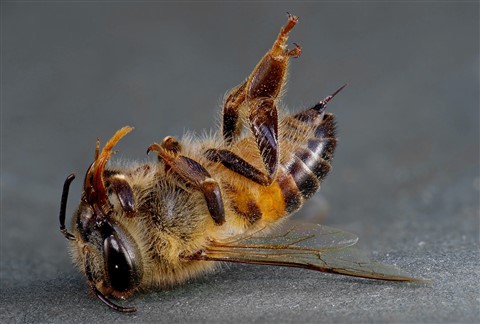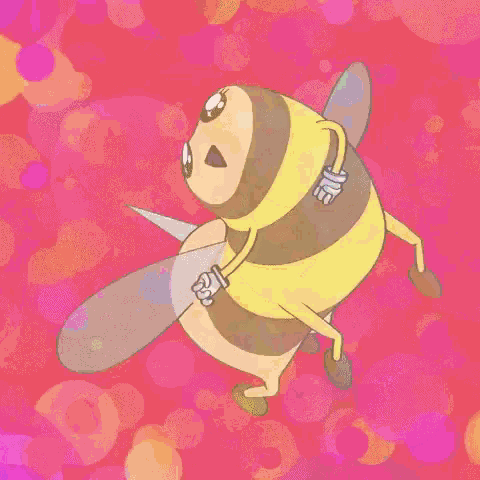
Hello everyone! Our team has been working hard to help the sick bees, but how exactly does a bee get sick? What happens to bees when they get sick? How do sick bees affect humans? In this blog post I will discuss the fungal parasites that affect bees and what the overall effects are of bees getting sick.

There are two microsporidian parasites that can affect bees: Nosema apis and Nosema ceranae. N. ceranae originally was a pest of the Asian honey bee but recently started to infect the European honey bee, and is more harmful than N. apis. That's why N. ceranae is the focus of our project in helping #SaveTheBees.
What happens when a bee gets infected with N. ceranae? The bee experiences changes in their overall appearance and physiology. They will have trouble digesting their food, they may become a forager at a young age and they have a shortened lifespan overall. If the queen becomes infected, her lifespan is shortened and she may lose the ability to lay eggs. This reduces the colonies' performance because the population declines, the bees are unable to perform their duties to the best of their abilities, which threatens the overall health of the colony. Entire colonies that are affected by this parasite may ultimately die.
Now, let's get into the details of how this parasite infects the bees. N. ceranae is a fungal infection, and fungal infections use spores to spread. The bees ingest these fungal spores during their day-to-day duties, such as eating or drinking contaminated sources, or they can be picked up from other infected bees in the hive by cleaning contaminated surfaces. It only takes one spore to cause an infection, and once infected, the spore count can get as high as 30-50 million spores in the bee midgut. The spores germinate in the midgut of the bee, and this is because in this area they are able to steal nutrients from the bee for themselves. The spores continue to grow and replicate inside the midgut, and can spread to the digestive tract which then leave the bee as feces. The fecal matter then contaminates the water/food/other surfaces, which can then spread to other bees.
Fun Fact: Spores take only 30 minutes to germinate, once ingested.
Once the spore gets into the bee, the contents are injected into an epithelial cell, where they then multiply until the cell bursts, releasing all of the spores back into the midgut. A diagram of how this occurs is located below.

So how do you know when the bees get sick?
Unfortunately, there is no good method of detecting when the bees are sick, and that is where we come in. This year, our iGEM team aims to create a detection system to detect when bees are sick. However, until we finish our work, the only way to really tell when bees are sick is to look for some of the following symptoms: declining colony populations, lower production of honey, reduced number of offspring, and poor survival over the winter. These symptoms don't necessarily mean that the hive is infected; the only way to know for sure if the bees are infected is to look for the spores under a microscope. This way is very inefficient because it takes a lot of time, money, and resources.Why should we care about sick bees?
Bees are actually incredibly important; they perform many functions in our ecosystems that are essential to our survival. The biggest impact that bees have on humans is that they are pollinators. This is a critical component in helping plants grow and produce the food that we need to eat to survive. Bees produce honey, which is a sweet snack for humans and it also serves as a food source to many other animals. Bees are also an integral part of the food chain and are preyed on by birds, raccoons, and other insects. Bees are super important to the function of ecosystems because not only do they build their own hives, they are also responsible for pollinating plants that are the homes to other species of insects and animals. Bees are also responsible for a lot of the diversity in ecosystems, and there are many species of bees that are adapted to certain types of plants in order to increase the success of pollination. As you can see, bees are extremely important to us, and they play a huge role in the ecosystem. The world would lose a lot of biodiversity, and food production would be greatly affected if the world were to lose bees. Hopefully after reading this paragraph, you can see what a catastrophe the world would go through if all the bees were to die from being sick.
So what can you do to help save the bees? The first step is being aware and educated about the issues surrounding bees. By reading this article, you are already taking the first step! You can also plant flowers for bees to pollinate, support local beekeepers by buying fresh and local honey, and don't use pesticides on your garden.
Check out this really cool website for more information!
Sources
- https://beeaware.org.au/archive-pest/nosema/#ad-image-0- https://www.ncbi.nlm.nih.gov/pmc/articles/PMC4924483/
- http://agriculture.vic.gov.au/agriculture/pests-diseases-and-weeds/animal-diseases/bees/nosema-disease-of-honey-bees
- https://friendsoftheearth.uk/bees/why-do-we-need-bees
- http://www.pthomeandgarden.com/5-ways-bees-are-important-to-the-environment/
Thanks for reading!
- Megan M.

0 comments:
Post a Comment